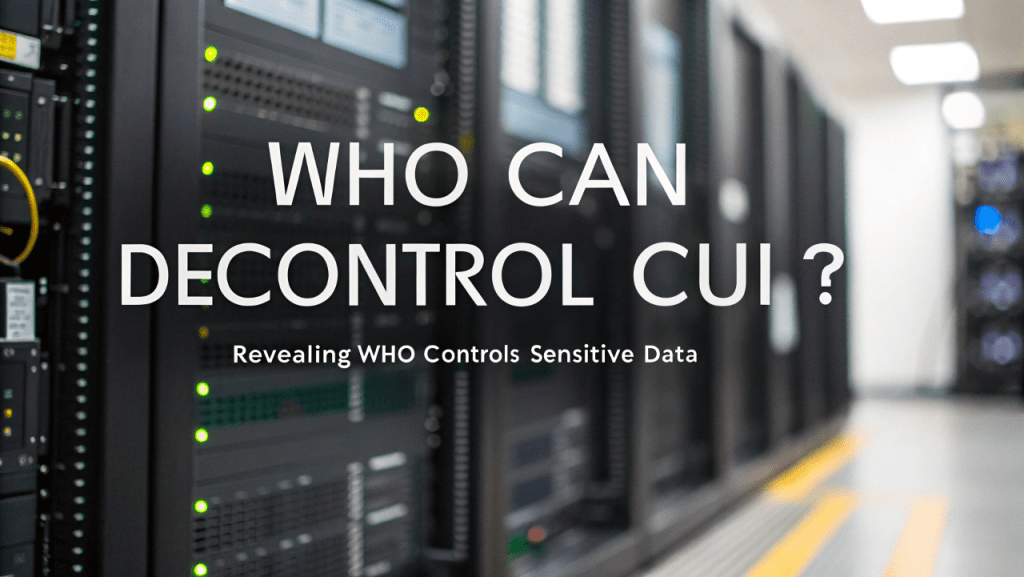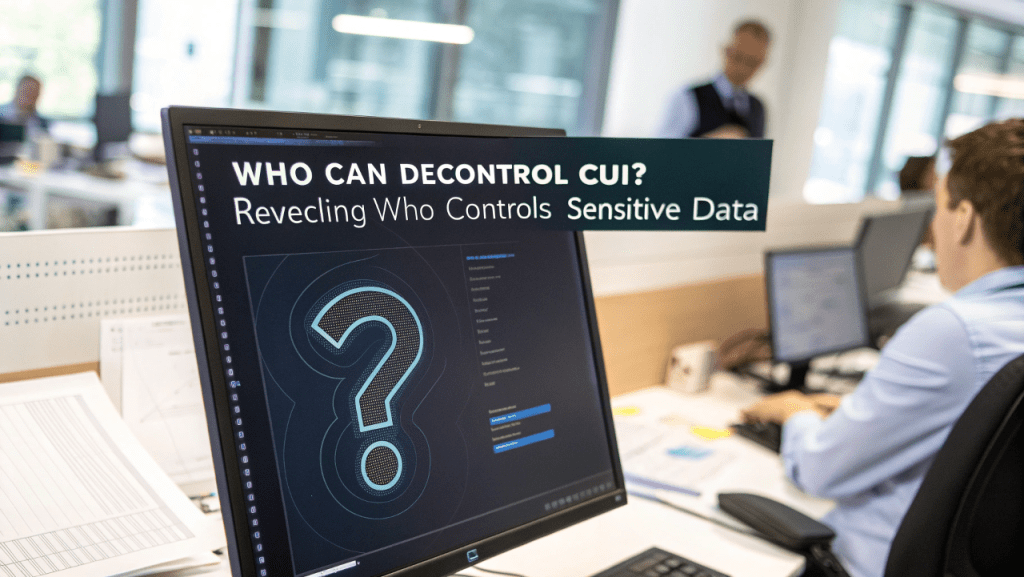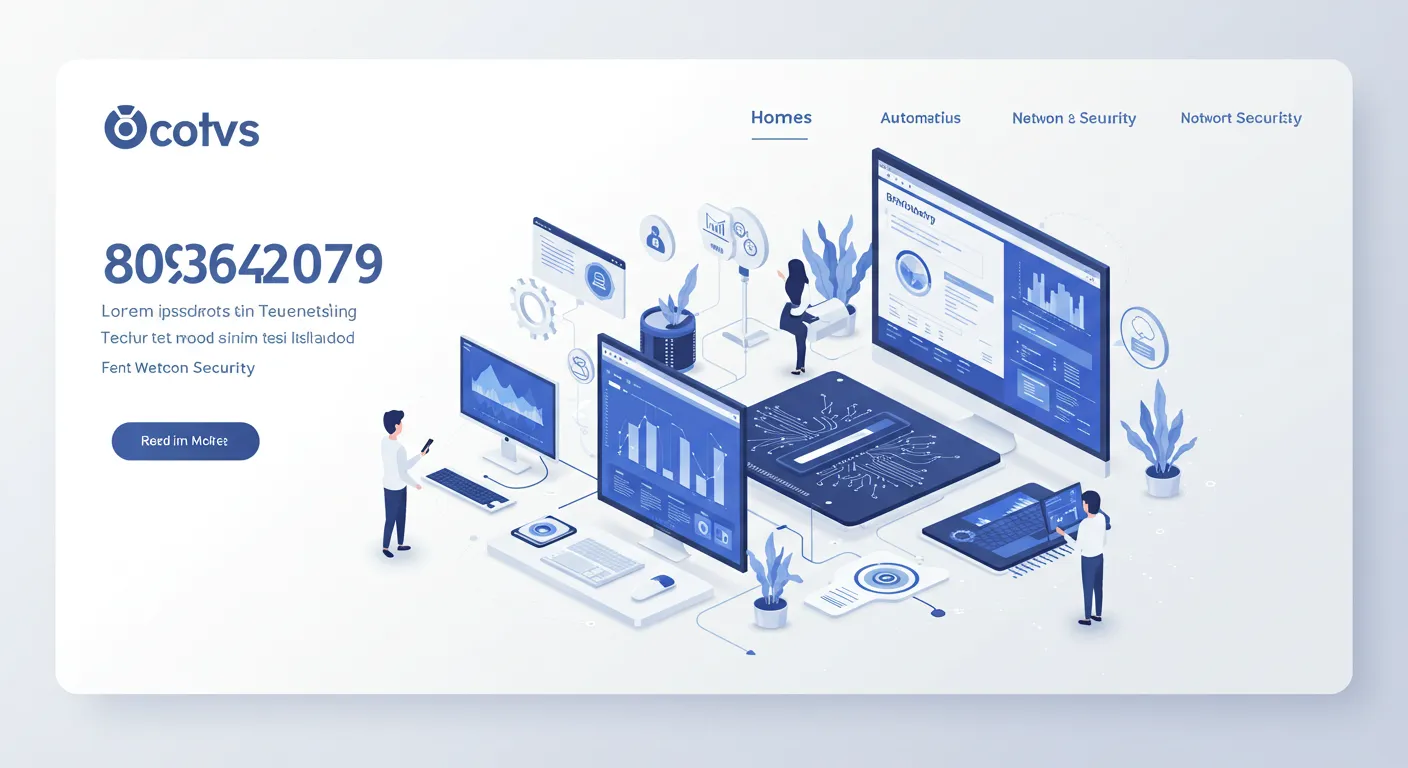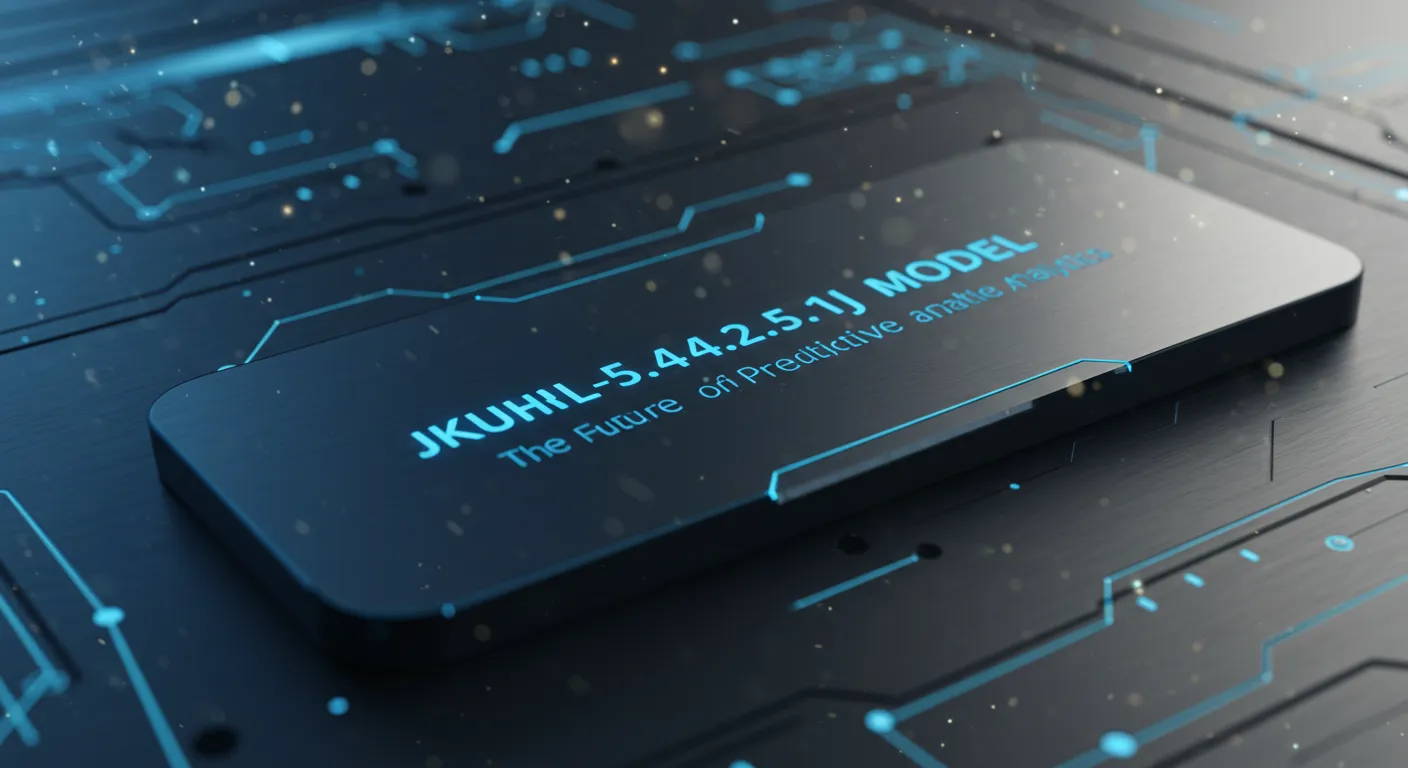Table of Contents
Controlled Unclassified Information (CUI) is one of the most important aspects of government data management. For agencies, contractors, and service providers, handling CUI comes with strict guidelines, security measures, and oversight.
This is primarily to ensure that sensitive data is protected and maintained with the proper controls. However, there are times when this information no longer needs to be classified as controlled.
This is where the process of decontrolling or declassifying comes into play. So, who can decontrol CUI, and how does it work? Let’s dive in and explore the details.
What is CUI Decontrol?
Decontrol is the process of removing specific pieces of Controlled Unclassified Information (CUI) from the list of information that needs to be controlled. When CUI is decontrolled, it means that the security and access restrictions that were previously in place can be eased.
It does not necessarily mean the information is destroyed, nor does it mean it will be freely available to the public. Instead, the decontrol process simply reduces the level of oversight required for that particular data.
There are several reasons why information may become eligible for decontrol, such as changes in laws, regulations, or policies that no longer require the same level of protection.
By decontrolling information, agencies and contractors can focus on securing the information that is most crucial while reducing the administrative burden associated with safeguarding less sensitive data.
Who Has the Authority to Decontrol CUI?

When it comes to decontrolling CUI, only certain entities have the authority to make that decision. There are three key groups that can initiate the process of decontrol:
- The Information’s Originator
The first group with the authority to decontrol CUI is the original creator of the information. This could be a government agency, a contractor, or any other entity that originally developed the controlled data. If the originator determines that the information is no longer relevant or required to be controlled, they can initiate the decontrol process. However, this decision must align with current laws, regulations, and policies. - The Original Classification Authority (OCA)
The second group with the authority to decontrol CUI is the Original Classification Authority (OCA). This authority is responsible for determining the classification level of the information and issuing corresponding guidance. If the OCA believes that the information no longer requires safeguarding or dissemination controls, they have the power to issue a decontrol order. - Designated Decontrol Offices
In some cases, designated offices are responsible for decontrolling CUI. These offices are typically specified based on the type of information and its source. For example, certain departments or specialized agencies may handle specific types of CUI, such as health-related or defense-related information, and have the authority to decide whether it can be decontrolled.
What Does Decontrolling CUI Involve?
Decontrolling CUI essentially means removing the restrictions that were initially placed on the data. While the information does not need to be destroyed or released to the public, it is no longer subject to the same stringent control protocols.
This includes the removal of markings that label it as controlled and allows for less stringent handling procedures.
However, decontrol does not absolve the entity or agency from protecting sensitive data altogether. Decontrolled information should still be handled appropriately, but it no longer falls under the strict CUI rules that govern access, record-keeping, and oversight.
Also Read: The Role of 8093642079 in Modern Tech Solutions
What Makes Information Eligible for Decontrol?

Certain circumstances can make a piece of CUI eligible for decontrol. There are specific conditions outlined in the Code of Federal Regulations (CFR) that govern when CUI can be decontrolled:
- Changes in Laws, Regulations, or Policies
When new laws, regulations, or government-wide policies are enacted, they may eliminate the need for certain types of information to remain classified as CUI. If the relevant governing authority determines that the information no longer requires the same level of protection, it can be decontrolled. - Proactive Disclosure by the Designating Agency
Sometimes, the agency that created the CUI may determine that disclosing the information to the public offers more benefits than keeping it controlled. In these cases, the information can be decontrolled to make it more accessible to the public. - Disclosure in Response to FOIA or Privacy Act Requests
The Freedom of Information Act (FOIA) and the Privacy Act provide avenues for the public to request information from the government. If the information is disclosed under these acts, it may be decontrolled as part of the disclosure process, provided there is no conflict with other regulations or protections. - Predetermined Events or Dates
Certain pieces of CUI may be designated for automatic decontrol once a predetermined event or date occurs. This could include the completion of a specific project or the passage of time. The originating agency may include such provisions when the CUI is initially designated.
Also Read: Korpenpelloz: Innovating the Future of Adaptive Intelligence Systems
How is CUI Decontrol Managed?
The process of decontrolling CUI involves several steps to ensure that information is no longer subject to stringent security measures while still adhering to necessary laws and regulations.
Before information can be decontrolled, a prepublication review is often conducted. This ensures that all necessary steps are taken to assess the eligibility for decontrol.
Once the review process is complete and the information is deemed eligible for decontrol, the CUI registry is updated, and the information is removed from the controlled list.
Agencies and contractors who hold the decontrolled information will be notified, and they must take appropriate steps to ensure that the information is no longer handled as controlled.
Decontrol vs. Declassification

It’s important to distinguish between decontrol and declassification. While they share similarities, they are different processes. Decontrol applies to CUI, which is information that is not classified but still requires some level of protection.
Declassification, on the other hand, applies to classified information, and the process is more involved, typically requiring a formal review and authorization by a high-level authority.
The Importance of Understanding CUI Decontrol
who can decontrol CUI is vital for any agency, contractor, or service provider dealing with controlled information. The ability to properly manage CUI and ensure it is only controlled when necessary can help reduce administrative burdens and improve efficiency.
Whether you are an information originator, an original classification authority, or a designated office for decontrolling, knowing the criteria and processes is crucial for compliance and proper data management.
As regulations and policies evolve, staying informed about the decontrol process is essential for anyone who works with CUI. With the right knowledge, agencies and contractors can ensure they handle sensitive information effectively, reducing unnecessary constraints while still protecting the information that requires safeguarding.
By following these guidelines and understanding the roles involved, businesses and agencies can navigate the complexities of CUI management, ensuring both compliance and operational efficiency.
FAQs
Who can decontrol CUI?
CUI can be decontrolled by the information’s originator, the original classification authority (OCA), or designated decontrol offices based on specific criteria.
What makes CUI eligible for decontrol?
CUI becomes eligible for decontrol if laws change, if the information is publicly disclosed, or if it meets a predetermined event or date for release.
What is the difference between decontrol and declassification?
Decontrol applies to unclassified information no longer needing protection, while declassification applies to classified info, typically requiring a formal review for release.




